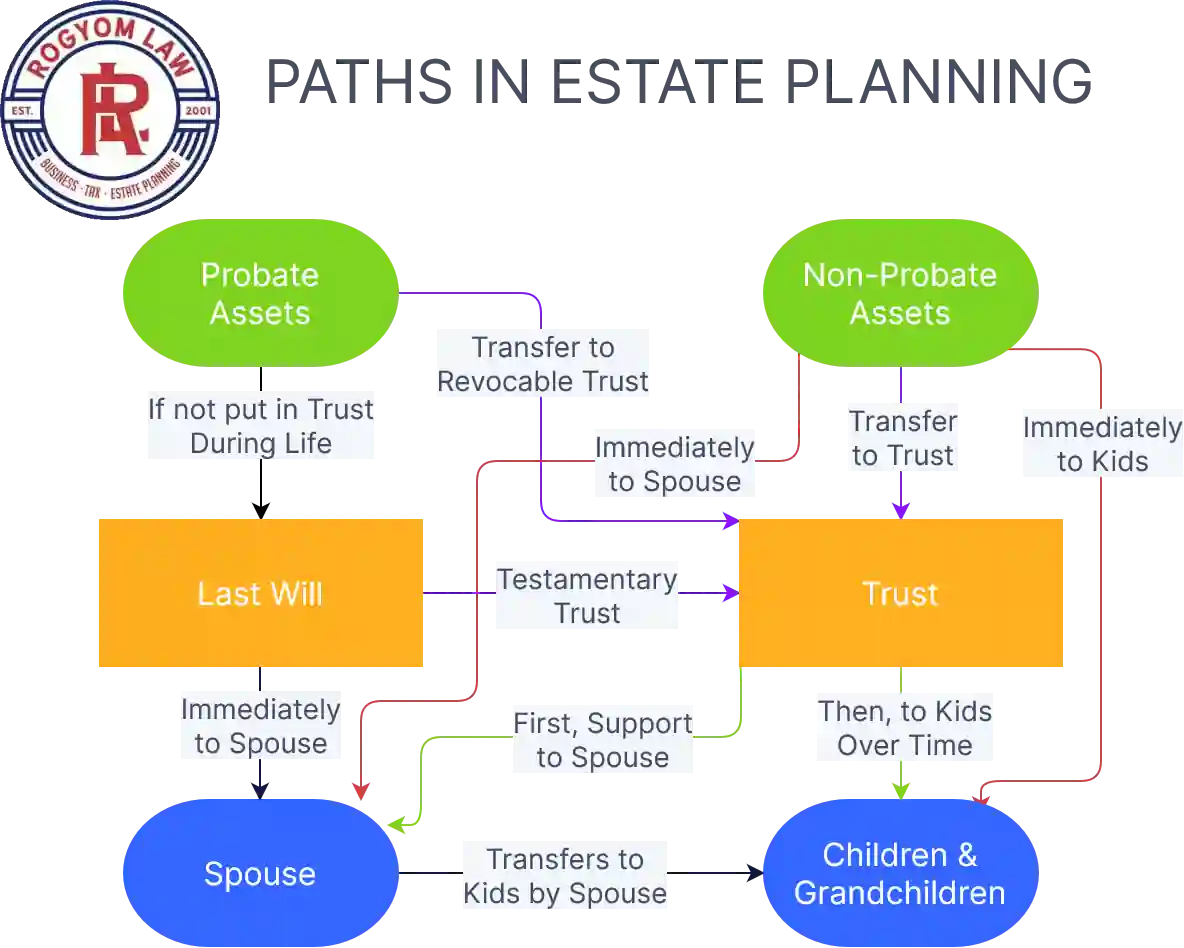Things about Estate Planning Attorney
Things about Estate Planning Attorney
Blog Article
The Definitive Guide for Estate Planning Attorney
Table of ContentsNot known Details About Estate Planning Attorney Estate Planning Attorney - An OverviewEstate Planning Attorney - An Overview
The numerous costs and expenses for an estate strategy should be gone over with your attorney. There are numerous resources for estate preparation offered on the web or by numerous companies, and the motivation to avoid lawyers' charges is often an encouraging aspect.
It is additionally feasible that it will certainly be changed as an outcome of the modification of management in 2020. The Illinois estate tax threshold quantity is $4,000,000 and an estate with also $1 over that quantity is subject to tax on the whole quantity. A person whose estate surpasses these exception or limit levels needs to do some additional estate planning to reduce or get rid of death tax obligations.
Nevertheless, the Illinois inheritance tax threshold is not portable. Normally, a gift of residential property from a person to his or her partner who is an U.S. citizen is not subject to a gift tax or an inheritance tax. Presents to any individual else is a taxable present, but undergoes an annual exclusion (talked about listed below) and the same life time exception as for federal estate tax.
What Does Estate Planning Attorney Do?
Some estate plans may consist of life time presents. In 2020, a person can surrender to $15,000 a year to anyone without a gift tax obligation. In addition, under certain situations, a person might make gifts for clinical expenditures and tuition expenses over the $15,000 a year limitation if the clinical payments and tuition repayments were made straight to the clinical provider or the education service provider.
Each joint lessee, regardless of which one acquired or originally owned the home, has the right to utilize the jointly had home. When two people very own residential property in joint tenancy and one of them passes away, the survivor comes to be the 100 percent owner of that building and the dead joint tenant's rate of interest ends (Estate Planning Attorney).

When a tenant-in-common dies, his or her rate of interest passes to his or her estate and not to the making it through co-tenant. The building passes, instead, as part of the estate to the heirs, or the beneficiaries under a will.
The 9-Minute Rule for Estate Planning Attorney

Illinois has adopted a statute that permits economic accounts, such as with a broker agent company, to be signed up as transfer on fatality ("TOD"). These are similar to a payable on death account. At the fatality of the owner, the assets in the account are moved to the marked recipient. Illinois has recently taken on a law that enables particular realty to be moved on fatality through a transfer on death tool.
The recipient of the transfer on death instrument has no rate of interest in the property till the fatality of the owner. All joint occupants should accept the sale or home loan of the residential property. Any kind of one joint lessee may take out all or Get the facts a part of the funds in a joint savings account.
Estate, gift, or earnings taxes may be affected. Joint tenancy may have other consequences. As an example: (1) if residential property of any kind is held in joint occupancy with a relative who obtains well-being or other benefits (such as social safety and security benefits) the family member's you could try here entitlement to these benefits might be threatened; (2) if you put your residence in joint tenancy, you might lose your right to useful elderly person property tax treatment; and (3) if you create a joint occupancy with a kid (or anybody else) the child's creditors might seek to gather your youngster's financial obligation from the home or from the profits of a judicial sale.
Nonetheless, joint tenancies are not an easy remedy to estate problems however can, more as a matter of fact, create problems where none existed. The expenses of preparing a will, tax obligation planning, and probate may be of little relevance compared with the unplanned troubles that can arise from using joint occupancies indiscriminately. For a full description of the advantages and disadvantages of joint tenancy in your particular situation, you must speak with an attorney
Report this page